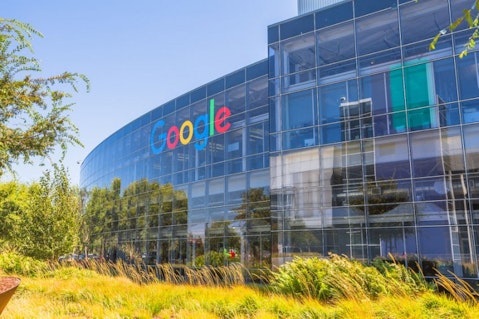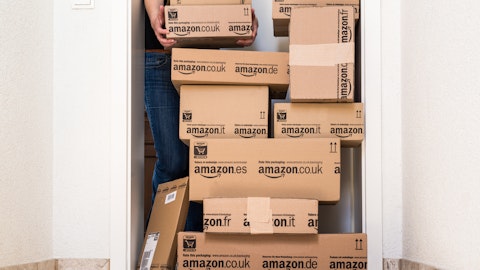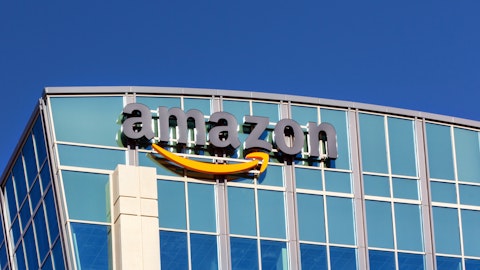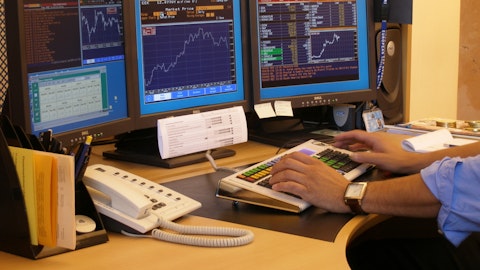For many months now, Chromebook sales have grown, slowly but steadily, even managing to outsell Macs for the first time ever earlier this year. And it’s only going to get better from here on out.
“Chromebooks?” You ask. Well, yes, those Chromebooks; made by a wide range of manufacturers, working with Alphabet Inc (NASDAQ:GOOGL)’s Chrome OS, offering bare minimum specs, relying on cloud storage instead of physical and an Internet connection.
Much like Android, Chrome OS is installed on laptops produced by a wide range of companies, including Lenovo, Dell, and HP. The best part about these computers is the low price range, the most expensive costing just a few hundred bucks. Now, when you compare these with Apple Inc. (NASDAQ:AAPL)‘s Macs, for instance, you see a huge gap. When you compare them with Microsoft Corporation (NASDAQ:MSFT) products, you’ll once more see a large difference in the price department.
We’re not even going to mention those new top-of-the-line $3,000 desktops they’ve unveiled recently because they may have the specs, but they cost an arm and a leg.
Of course, these differences are explained, in part, by the fact that Alphabet Inc (NASDAQ:GOOGL)’s Chromebooks use Chrome OS which is free, so companies don’t have to pay licensing fees for installing them on their laptops, and neither do the users. Then, it’s the rather low specs that come with these laptops. Since they’re created for Internet browsing and browser-based gaming, they don’t really need much to work with and Chrome OS is good at milking everything the hardware can give anyway.

Copyright: bennymarty / 123RF Stock Photo
There are also several other differences between these companies. Microsoft’s laptops are self-made, and so are Apple’s Macs, whilst Google’s Chromebooks are made by a wide range of manufacturers. This is similar to how things are going with each of these companies’ mobile operating systems, where Microsoft Corporation (NASDAQ:MSFT) and Apple Inc. (NASDAQ:AAPL) make their own, Android phones are largely made by other companies, leaving out, of course, the latest Pixel phones, where Alphabet Inc (NASDAQ:GOOGL)’s Google division went all-in. The company’s involvement in the Pixel phones indicates, once more, that Alphabet is looking to get involved in the hardware side of business, something they’ve been meaning to do for a while now.
Slow but steady
In a world where PC shipments are crashing, Chromebooks are winning ground. IDC reported earlier this year that there’s been a year-on-year 3.9% decline in worldwide PC shipments. In the same time, Chromebook sales kept growing, especially among youngsters. For this year’s first quarter, estimates indicate it sold 2 million laptops, while Apple Inc. (NASDAQ:AAPL) only managed to sell 1.7 million Macs in the same period of time.
The advantage Alphabet Inc’s (NASDAQ:GOOGL) Chromebooks have over devices such as those produced by Apple Inc. (NASDAQ:AAPL) or even Microsoft Corporation (NASDAQ:MSFT) goes beyond the price range; it’s how easy they are to operate by even the most inexperienced users. They’re not only particularly perfect for students, which is also one of the main groups of people that is using Chromebooks, but also for seniors who don’t spend their time playing MMORPGS that need loads of hard drive space, tons of RAM and a top of the line graphics card. They’re easy to work with, easy to maintain, inexpensive and largely free of malware and viruses.
A little bit more secure
Unlike Microsoft Corporation (NASDAQ:MSFT)’s operating system or Apple Inc. (NASDAQ:AAPL)’s Mac OS, Chromebooks aren’t being targeted by those seeking to do harm just to test out their latest virus. Unless we’re talking about a targeted attack, there haven’t been many issues with Chrome OS security. In fact, they’re not even on the radar of big antivirus companies due to the low risk they pose. Unlike on Windows or Mac, here you can just go to the web store, pick your apps and have fun. You don’t have to look through a gazillion sites for tools that can help you in your job, install software that you may or may not be sure about, and put your security at risk while you’re doing that.





